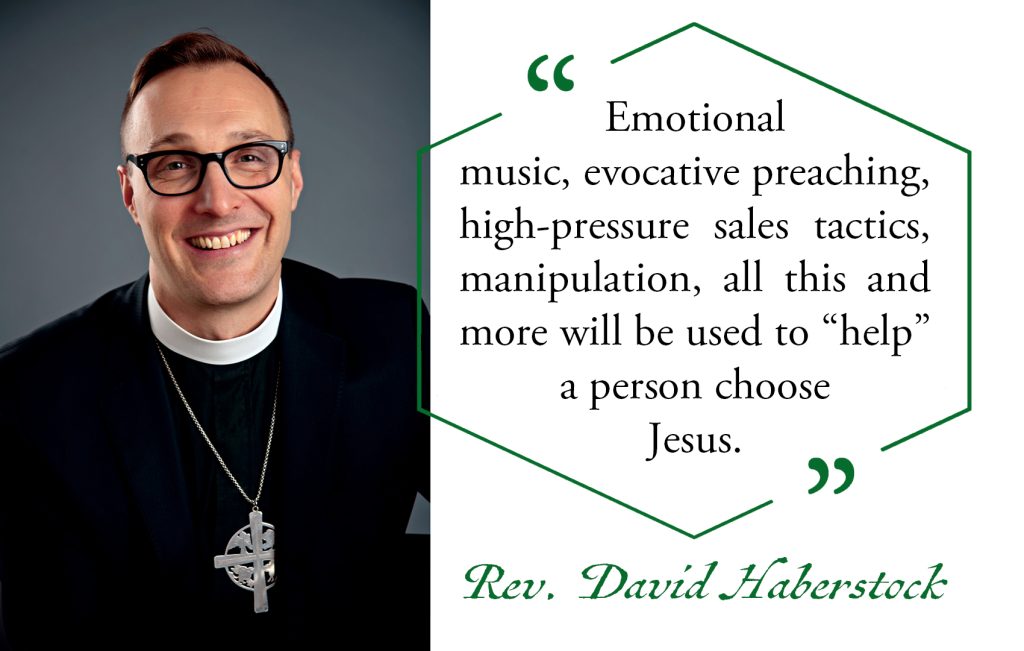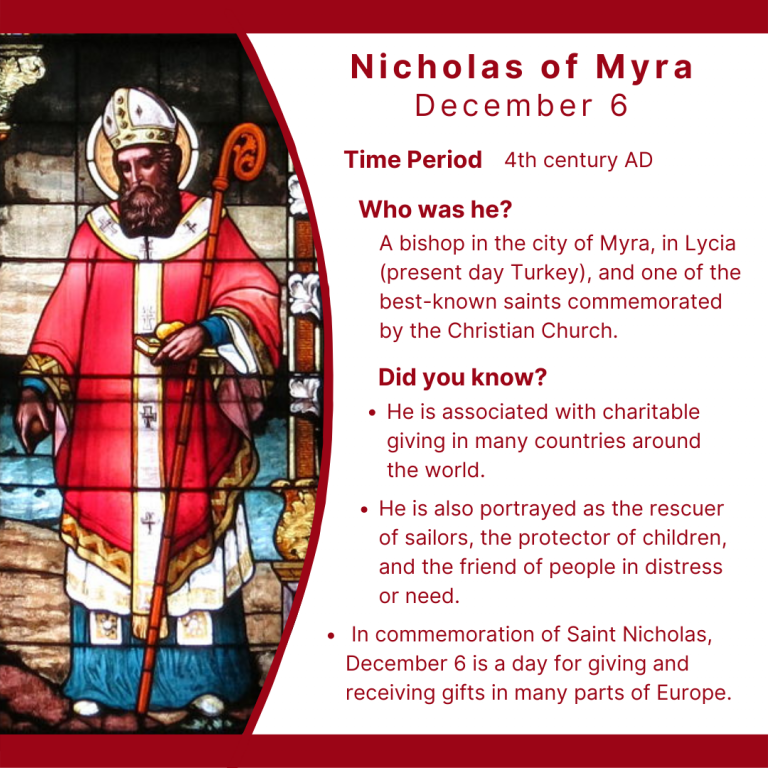Revivalism and Evangelism
 by David Haberstock
by David Haberstock
In my last few columns I’ve been talking about three “alternate” or fake marks of the Church: pietism, mysticism, and enthusiasm. Now I talk about the final one: revivalism. In his book, Has American Christianity Failed?, Brian Wolfmueller defines revivalism as the teaching “that the Christian life begins with a personal decision to accept Christ.”
The natural state of humanity is spiritually dead in sin and transgressions (Ephesians 2:1; Romans 5:6, 8, 10; 6:3-4; Colossians 2:12, etc.). Dead men can’t walk, can’t choose, can’t do anything.
When Jesus says, then, “Come unto Me all ye that labour and are heavy laden” (Matthew 11:28), He is talking to the living, not the dead. Yes, all who live on earth are alive, breathe, and so on. But if you are not connected to the Vine, raised to new life, granted eternal life here and now, then you are the walking dead (John 15:1-8; 10:10; 11:25; 14:6, etc.), for you remain dead in sins and transgressions (Ephesians 2:1-2). Thus, this statement of our Lord, “Come unto Me all ye that labour… and I will give you rest,” is spoken to the spiritually alive—believers—who are grafted into the vine and live in Christ Jesus.
The spiritually dead are bodily alive, but slaves to sin (Romans 6:15-23). They cannot choose God, which is why we must be born again (John 3:3), born of God, not born of the flesh, nor the will of the flesh (John 1:13; 3:6). In Holy Baptism you are born of God (John 3:5).
A favourite verse for revivalist Christianity is another verse spoken to believers, “Behold, I stand at the door, and knock: if any man hear My voice, and open the door, I will come in to him, and will sup with him, and he with Me” (Revelation 3:20). He who has ears to hear, let him hear: this is written to the church in Laodicea. This is written not to the spiritually dead, but the spiritually living. Not to the spiritually deaf and dumb, but those whose ears have been opened by the living Word of God.
Revivalism says that on your own, in your natural state, you can spiritually hear, act, choose, and live. But this is all contrary to the clear word of God. Revivalism assumes that your natural will has some degree of spiritual freedom. That before salvation you are able to chose God. But outside of Christ, you are spiritually dead in sin. Dead men can’t do anything.
Emotional music, evocative preaching, high-pressure sales tactics, manipulation, all this and more will be used to “help” a person choose Jesus.
Thus, for revivalism, evangelism means using whatever you can to convince, manipulate, or cajole a decision for Jesus out of someone. Emotional music, evocative preaching, high-pressure sales tactics, manipulation, all this and more will be used to “help” a person choose Jesus. However, once the Word of God converts your heart to believe on Jesus you are already saved, for Jesus by the Holy Spirit has done it all!
Evangelism, in reality, is not manipulating or leveraging someone into a decision, but merely speaking the Absolution we receive every Sunday to the world: your sins are forgiven on account of Jesus.
For a revivalist it is hard to tell someone their sins are definitely forgiven because the revivalist can’t be sure your sins are forgiven because they can’t be sure you’ve totally given your life to Jesus, really invited Him into your heart, or completely surrendered your will to Him. In revivalism there is always something about the Gospel that is dependent upon you, which means that the absolution can’t be spoken purely. The focus is not on proclaiming Jesus’ salvation of you, but on your decision.
This turns away from the Gospel back to the Law. For revivalism, the Gospel is only potential until you act on it, not the power of God for salvation (Romans 1:16).
No, the Gospel does not need your decision. It stands unassailably true. The devil, the world, the flesh, and your bad conscience cannot undo the blood of Jesus. That’s what the Absolution means.
Can you imagine not living with the Absolution, so that you are wondering constantly what God thinks about you? Where are you going to look to see if you have the forgiveness of sins? At your growth and good works? At your experience of God? At your decision? These things always depends on you, not on the Lord.
 The Lutheran altar call is the call to come to the actual altar in your church, where Jesus says, “Come unto Me all ye who are heavy laden and I will give you rest. Come, take and drink. Your sins will be forgiven.”
The Lutheran altar call is the call to come to the actual altar in your church, where Jesus says, “Come unto Me all ye who are heavy laden and I will give you rest. Come, take and drink. Your sins will be forgiven.”
It is objective. True. Outside yourself. For you.
———————
Rev. David Haberstock is Lutheran Church–Canada (LCC)’s Central Regional Pastor.



